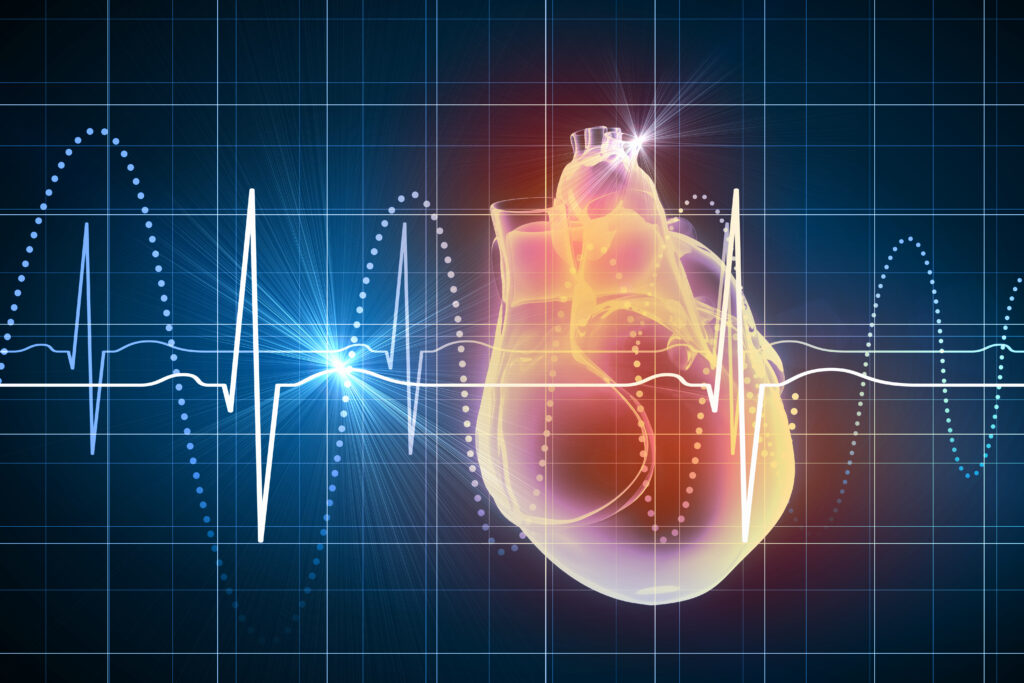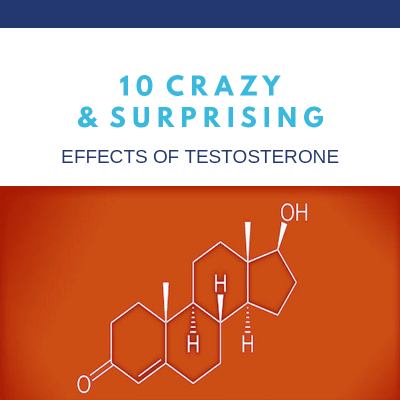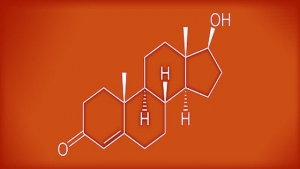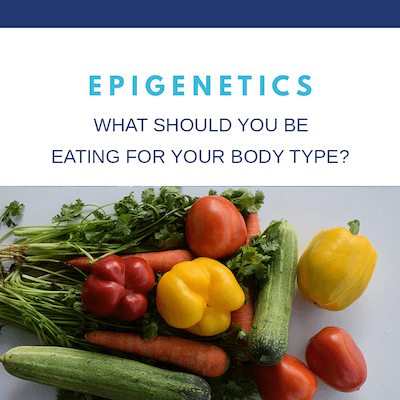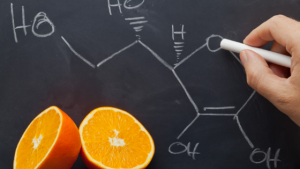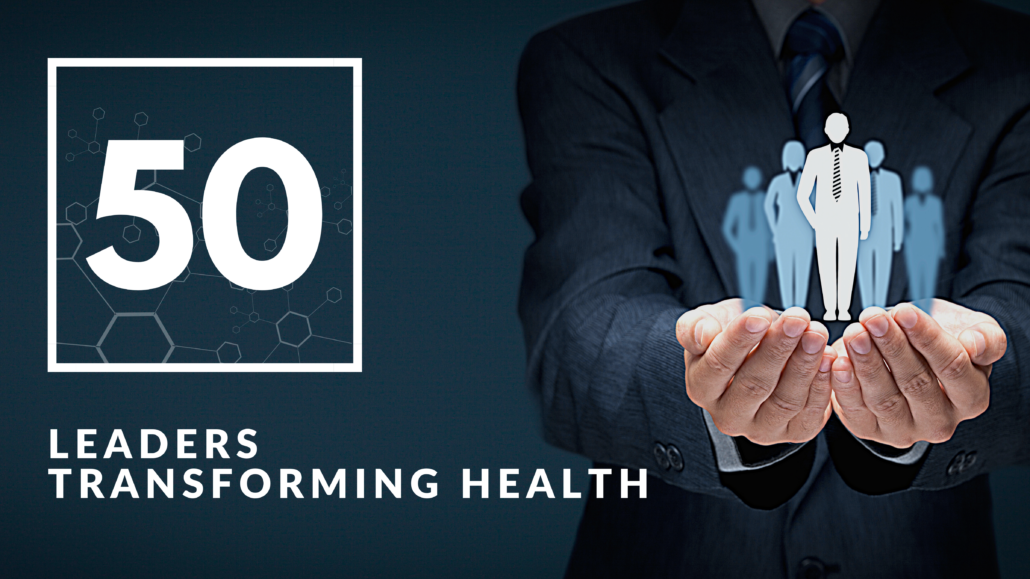
Finding the best resources for upgrading your health can be a difficult task. My goal is to help every man on the planet optimize his performance, testosterone, health, and life. My passion is to help men thrive so they can be better fathers, husbands, leaders, and role models for future generations.
To that end, I’ve launched the Male 2.0 Movement to tackle the testosterone epidemic and men’s health crisis we are experiencing. My goal is to help men overcome issues such as obesity, cognitive decline, metabolic syndrome, hormone imbalance, and aging. I’ve joined forces with other experts in the field to transform men’s lives and create long-term positive change for generations to come.
I want you to have access to everything you need to be the best man you can be, so I’ve gathered a list of the top 50 influencers who are optimizing men’s health. These are thought leaders in the human optimization arena focused on transforming men’s lives. Listed alphabetically but not in any other order, each person addresses different challenges and has unique methodologies based in the latest research and science. For those of you new to my blog, I’m also including how I’m contributing to this movement through my practice and unique Male 2.0 Method.
About Tracy Gapin, MD
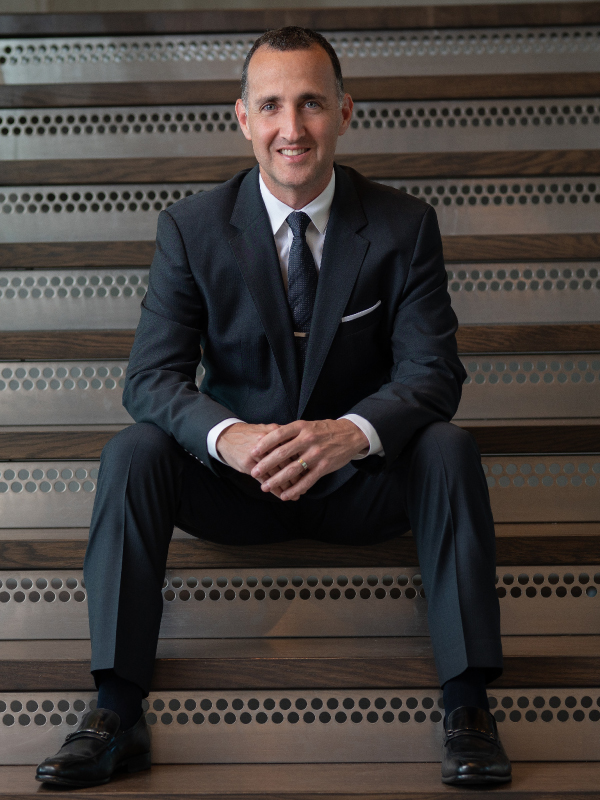
Tracy Gapin, MD is a medical doctor and practicing surgeon tackling the Men’s health crisis and Testosterone epidemic. He is focused on helping men not just improve testosterone levels, but also upgrade energy level, focus, vitality, and performance, and actually reverse aging. In fact, he clearly believes men’s health is not just about testosterone optimization, but human optimization.
His Male 2.0 method approaches health using epigenetic science and four key factors: Mindset, Aging, Lifestyle, and Environment. Many men are challenged by symptoms caused from low testosterone. However, you’ll have limited results if you are addressing testosterone without taking a more comprehensive approach, integrating solutions for other aspects of health as well, including sleep, mindset, nutrition, fitness, and detoxification.
Using cutting-edge age management protocols, Dr. Gapin coaches Fortune 500 executives, entrepreneurs, and evolutionary leaders of business and high performance. He incorporates epigenetic coaching, hormone optimization, peptide therapy, state-of-the-art biometric monitoring, and nutrition and lifestyle intervention to provide men a personalized path to optimizing health & performance.
Hear more on Dr. Gapin’s men’s health podcast coming soon — Beyond Testosterone.
50 Health Optimization Leaders Transforming Men’s Health

Boomer Anderson is the founder of Decoding SuperHuman and a leader in genetic technology. He thought he was in good health at 30— already using biohacking, working out and eating clean. But then he was diagnosed with heart disease. He decided to use his genetic code and data to optimize his health and performance— and now helps others achieve superhuman results. The Decoding Superhuman methodology provides an individualized approach to performance backed by science and data. It utilizes behavior change, performance analysis, and data technology to help clients achieve and sustain a high-performance life. You can also check out his podcast in which he discusses a variety of topics such as sleep, environment, nutrition and behavior. https://decodingsuperhuman.com/
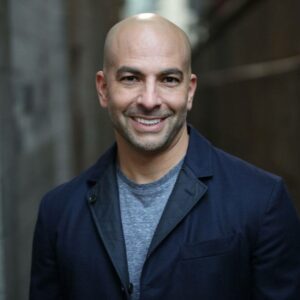
Dr. Peter Attia is the founder of Attia Medical, a medical practice with offices in San Diego and New York City, focusing on the applied science of longevity. He applies nutritional biochemistry, exercise & sleep physiology, pharmacology, and four-system endocrinology to delay the onset of chronic disease, while simultaneously improving quality of life. A trained physician whose career started in general and oncological surgery, he has shifted his focus to the applied science of longevity, the extension of human life and well-being. Peter is the co-founder and Chief Medical Officer of the fasting app Zero and hosts a popular weekly podcast, The Drive, with topics including fasting, ketosis, Alzheimer’s disease, cancer, mental health, and much more. https://peterattiamd.com/
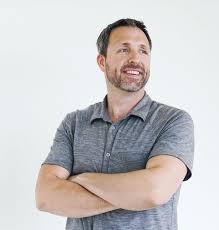
Dave Asprey is Bulletproof founder, CEO and Father of Biohacking whose “aha moment” happened on a trek in Tibet when he experienced the rejuvenation of yak butter tea. Bulletproof is built on the science that helped Dave lose 100 pounds and hack his own biology to become a stronger, healthier person. Bulletproof products are backed by the ancient knowledge from Ayurvedic and Chinese medicine that transformed Dave’s life. The Bulletproof line started with a focus on coffee but now offers a wide range of research-backed supplements and nutrition. https://www.bulletproof.com/

Dr. Axe is a certified doctor of natural medicine, doctor of chiropractic and clinical nutritionist with a passion to help people with their health. He operates one of the world’s largest natural health websites, DrAxe.com. Dr. Axe is the best-selling author of the groundbreaking heath book Eat Dirt and Keto Diet. His latest book, The Collagen Diet, is now available in stores. He worked with U.S. athletes at the 2012 Olympic games and has been featured on The Dr. Oz Show and Today Show. https://draxe.com/

Dr. Jeffrey S. Bland is known as the “father of functional medicine.” Over the past thirty-five years, Dr. Bland has traveled more than six million miles, teaching more than a hundred thousand health-care practitioners in the United States, Canada, and more than forty other countries about functional medicine. He has been a university biochemistry professor, a research director at the Linus Pauling Institute of Science and Medicine, the co-founder of the Institute for Functional Medicine in 1991, and the founder/president of the Personalized Lifestyle Medicine Institute. He has authored more than one hundred scientific publications and ten books for health professionals and consumers. https://jeffreybland.com/
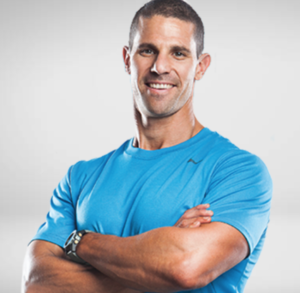
Ben Brown, is the owner of BSL Nutrition, an online nutrition & fitness consulting business specializing in individualized nutrition, lifestyle, and strength training programs for highly driven busy men. He has masters degrees in Clinical Nutrition and Exercise physiology, but it was his own personal journey with chronic fatigue and Epstein-Barr Virus that inspired him to support others in removing common immune suppressing habits. He works with both individuals and businesses, as well as consulting professional sports teams, including the Arizona Diamondbacks and Golden State Warriors. Although these are cool opportunities, he finds it more rewarding to work with regular day “Joes”: those who are struggling to find the balance between business and family to optimize their health. https://www.bslnutrition.com/
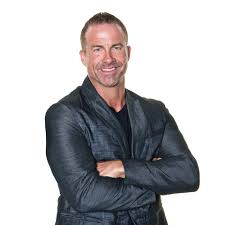
Jay Campbell is the founder of the TOT Revolution site and podcast, a leading resource in men’s health with a focus on hormones and optimizing health. When Jay was 29, he was kicked in the testicles and has been receiving therapeutic testosterone since. Jay’s ultimate mission is to create resources for men to get the real and honest truth about using therapeutic testosterone. He also founded www.menshealthcare.com as the premier online destination for patients to find the best vetted physicians in the USA. Jay has experience working with thousands of men in optimizing their nutrition and fitness. https://www.totrevolution.com/

Dr. Michael A. Dempsy, is a seasoned physician with a busy general endocrinology practice, with a special emphasis on diabetes. He has been actively involved in more than 150 diabetes related clinical trials since 2000 with research focusing on rapid and long acting insulin analogues as well as new oral or injectable glucose lowering therapies. As your go-to resource for research and education on diabetes, he provides a unique perspective on the underlying causes, prevention, and treatment. http://www.thediabetesdoc.com/

Dr. Geo Espinosa is a naturopathic doctor, acupuncturist and functional medicine practitioner recognized as an authority in holistic urology and men’s health. His thriving clinical practice focuses on conditions such as prostate cancer, pelvic pain, and sexual dysfunction. Dr. Geo is the author of the best selling prostate cancer book: Thrive, Don’t Only Survive. Dr. Geo created XY Wellness (https://www.xywellness.com/) as a resource offering integrative programs, supplements, and education for men living with prostate cancer. https://drgeo.com/

William (Bill) Faloon has been researching anti-aging since the 1960’s and compiled the 1,500 page medical reference book Disease Prevention and Treatment and his latest book is Pharmocracy. He argues that aging is the greatest affliction of humanity and that if people had the opportunity to live longer, many of society’s problems would disappear. Holding a controversial stand, the federal government raided his facilities twice, initiated an 11-year criminal investigation, and threw him in jail in 1991! After several lawsuits, all claims and charges were revoked. However, with more media coverage, he has been able to spread his scientifically- supported message of optimal health to hundreds of thousands of members and subscribers of Life Extension Magazine. https://www.lifeextension.com/

Tim Ferriss is someone most of us have heard of, but we couldn’t leave him off the list. Tim Ferriss has been listed as one of Fast Company’s “Most Innovative Business People” and one of Fortune’s “40 under 40.” His mission is to help people hack their lives for optimal performance and health. An author, speaker, and podcast host, Tim tests and experiments with ways to become superhuman and accelerate results in the least amount of time. Known best for his first book, The 4-Hour Workweek, he has gone on to apply this 4 hour technology to fitness and cooking in additional books. If you no longer want to be ruled by the belief that having a life you love requires a lot of time and effort, follow Tim Ferriss! https://tim.blog/
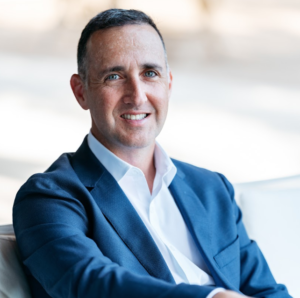
Dr. Tracy Gapin is a world renowned men’s health & performance expert, professional speaker, entrepreneur, and author of Male 2.0: Cracking the Code to Limitless Health and Vitality. He has over 20 years of experience focused on providing Fortune 500 executives, business leaders, entrepreneurs, and athletes a personalized path to optimizing their health and performance. Dr. Gapin incorporates precision hormone optimization, peptide therapy, state-of-the-art biometric tracking, epigenetic coaching, and cutting-edge age management protocols to help men not just optimize their testosterone levels but transform their health and vitality and reverse aging so they can be the most amazing version of themselves. As a renowned speaker, Dr. Gapin shares his signature talk with medical audiences and men’s health organizations: A Data-Driven Personalized Approach to Optimizing Men’s Health. Founder of the Gapin Institute for Men’s Health and the Male 2.0 Method, he is creating a meaningful impact for men’s health. https://drtracygapin.com/

Ben Greenfield has been named one of the world’s top 100 most influential people in health and fitness, coaching the world’s top CEO’s and athletes. A self-proclaimed science nerd, he built a brick-and-mortar fitness empire, wrote a bestselling book “Beyond Training” and now has an online blog and podcast that is top rated for his resources around biohacking, health, and fitness. As founder and CEO of Kion, Ben now creates step-by-step solutions for the world’s active, high-achievers to live a full life with optimized minds and bodies. https://bengreenfieldfitness.com/

Dr. Jeffrey Gladden is a board certified interventional cardiologist and founder of Apex Health, Human Performance & Longevity Optimization. Though interventional cardiology had been his calling and livelihood for the 25 years, Dr. Gladden knew he needed a change for the sake of his own health and that of his family when, in his mid-fifties, his health took a turn for the worse. When modern medicine couldn’t help him, he threw himself into learning everything he could about functional medicine, bio-identical hormone replacement and age management medicine. This led to diagnosing his own subclinical hypothyroidism. With changes in diet based on genetics and gut biome data, he began to feel more youthful again. He is now committed to sharing his knowledge with others through consulting and as co-host of the podcast, “Living Beyond 120”. https://livingbeyond120.com/

David Goggins transformed himself from a depressed, overweight young man into a U.S. Armed Forces icon and one of the world’s top endurance athletes. The only man in history to complete elite training as a Navy SEAL, Army Ranger, and Air Force Tactical Air Controller, he went on to set records in numerous endurance events, inspiring Outside Magazine to name him “The Fittest (Real) Man in America.” But David doesn’t care about metals and accolades, rather it is about achieving his personal best and pushing himself well past his comfort zone. For him, physical and mental suffering are a journey of self-discovery and no other experience makes him feel more clear, focused, and alive. In his book Can’t Hurt Me, he shares his astonishing life story and reveals that most of us only tap into 40% of our capabilities. He illuminates a path that anyone can follow to push past pain, demolish fear, and reach their full potential. https://davidgoggins.com/

Aubrey de Grey is an English author and biomedical gerontologist. As the Chief Science Officer of the SENS Research Foundation and VP of New Technology Discovery at AgeX Therapeutics, his mission is to reduce death from age-related causes through regenerative medicine. Dr. Grey has identified seven types of molecular and cellular damage and provides access to therapies that can repair this damage. He has been interviewed as an expert on anti-aging in top media outlets like 60 Minutes, The New York Times, and TED. https://www.sens.org/

Dr. Mickra Hamilton is Co-Founder and CEO of Apeiron Zoh and the Apeiron Academy. She is also a retired Colonel and Human Performance Subject Matter Expert in the United States Air Force Reserves. As a “Human Systems Designer,” and creative disruptor in the field of Epigenetic Human Performance Coaching, she creates a new paradigm for what is possible for human flourishing through a personalized systems-based precision approach. Dr. Hamiltons speaks internationally on topics such as epigenetics of the human environment, performance breathing, conscious leadership, peak psychophysiological performance and stress optimization. In Apeiron’s R & D division, her current developments focus on 3-D soundscape/naturescape virtual reality programming and breath/heart/brain entrainment to create beneficial shifts in states of consciousness. https://www.apeironzoh.com/
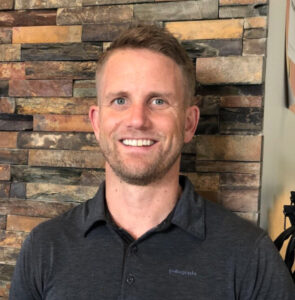
Bill Hanks left his career in engineering to open Cryo Recovery (now Huemn) in Houston,Texas after a personal health transformation using cryotherapy to reduce an inflammatory disease. Cryotherapy works with the body’s natural systems to reduce inflammation and increase metabolism. An avid learner and researcher, he gathers the latest science from doctors, therapists, and scientists from around the world to find the best ways to address the human system from an engineering perspective. His team now offers a variety of services to support the human body in healing without surgery or medication, but modalities such as light therapy and lymphatic drainage, in addition to whole and local cryotherapy. https://behuemn.com

Dr. Bob Harding is an innovative physician who believes food is the best medicine and that optimizing your lifestyle for your genetic blueprint can create a healthy vibrant life. In his medical practice, he saw chronic illness in the lives of people his own age and recognized a major contributing factor not addressed in conventional medicine: lifestyle. Once working long stressful shifts as an ER doctor, he transformed his body from one struggling with obesity, relentless heartburn and pre-diabetes, to a slim (losing 40 pounds) physique with no more symptoms. Not only did Dr. Harding use low-carb eating, specific supplements, stress reduction, and hormone optimization to create these drastic shifts, he also addressed another missing component: mindset. Shifting the narrative of how he sees his own life has been key to success on his journey. He now helps his clients reach their human potential by working with them to develop Personalized Human Optimization Programs to fit their goals. https://drbobharding.com/

Sam Harris is the author of five New York Times best sellers and has published work in top outlets like The New York Times, Time, Scientific American and The Economist. His writing and public lectures cover a wide range of topics—neuroscience, moral philosophy, religion, meditation practice, and human violence,—but generally focus on how a growing understanding of ourselves and the world is changing our sense of how we should live. He also hosts the Making Sense Podcast, in which he explores the most important questions about the human mind, society and current events. As an avid meditation advocate, Sam has created the Waking Up Course for anyone who wants to learn to meditate in a modern, scientific context. https://samharris.org/

Dr. Mark Hoch has a background in biological sciences, neurobiology and behavior. He instinctively knew that so much was missing in healthcare education and his mission has been to discover and master diagnosis and health optimization on all levels of human health. This includes the physical (biochemistry, hormones and biomechanics), emotional, mental, social, environmental and spiritual aspects of what it means to be fully human. He is now bringing all that experience to health programs for you through the Apeiron Center for Human Potential. There he offers an integrated model of modern medicine and the latest cutting edge genetic science to infinitely expand human capacity. https://www.apeironcenter.com/

Chad Howse is the founder of Chad Howse Fitness and Average 2 Alpha with a mission to motivate and inspire men to be the best man they can be. By incorporating what he has dubbed, “The Man Diet”, he is fighting the epidemic that leaves men impotent, unable to build muscle or burn fat, lethargic, and depressed: low testosterone. His sites provide resources on relationships, health, and fitness addressing the common challenges the modern man faces. http://chadhowsefitness.com/
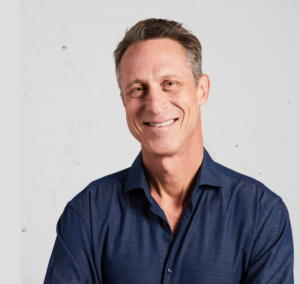
Dr. Mark Hyman, believes that we all deserve a life of vitality and is dedicated to tackling the root causes of chronic disease by harnessing the power of Functional Medicine to transform healthcare. Dr. Hyman is a practicing family physician, a ten-time #1 New York Times bestselling author, and an advocate in his local communities for better nutrition and health. “Your fork is the most powerful tool to transform your health and change the world, ” he says. He is a contributor to The Huffington Post and has been featured as an expert on many media outlets such as the Today Show, Good Morning America and The Dr. Oz Show. His podcast, “A Doctor’s Pharmacy” provides expert interviews and education on the latest trends and research in Functional Medicine. He also provides various weight loss programs and supplements. https://drhyman.com/

Chris James began his journey outdoors foraging medicinal and edible plants, hiking, hunting and camping in the woods as a child. After a serious job accident that resulted in numerous traumatic injuries, he began to research ways to heal himself and make his body and mind operate at peak levels. Soon thereafter, optimal health and performance through biohacking and ancestral health became his biggest passion and he founded PrimalHacker: a comprehensive resource for athletes, executives and entrepreneurs to perform better, feel better and live longer. “Sitting is the new smoking,” Chris says. Since most people sit behind a desk for work, he’s helping people offset that with lifestyle changes involving technology, diet, movement and various other cutting edge therapies. https://primalhacker.com/

Dr. Anthony G. Jay, is the President and CEO of AJ Consulting Company. Dr. Jay has specialized in researching viruses and their inhibitors connected to fatal diseases such as HIV and Alzheimer’s disease. This has led him to his current work at Mayo Clinic in doing advanced research, epigenetics, and infrared light. Dr. Jay is a bestselling author of Estrogeneration, a book that identifies specific artificial estrogens in our everyday environment and educates the reader on ways to take their health back. His website provides resources and recommendations on how to reduce estrogenic exposure and optimize health with DNA analysis and biohacking. https://www.ajconsultingcompany.com/

Dr. David Jockers is a doctor of natural medicine, functional nutritionist, and corrective care chiropractor. His mission is to empower people with science based solutions to have a healthy and vibrant lifestyle. He offers revolutionary online programs, recipe guides, meal plans and video instructions such as “The Sugar Detox,” and “The Cancer Cleanse” to name a few. Dr. Jockers speaks around the country on topics such as weight loss, brain health, functional exercise, natural detoxification and disease prevention. He also sees patients from all over the world at his Georgia clinic, Exodus Health Center, where he helps customize specific lifestyle plans to improve performance and live with less pain and more energy. https://drjockers.com
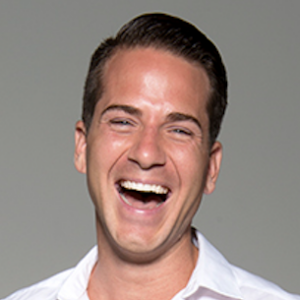
Dr. Isaac Jones has been named “the doctor of the future” and is a functional health expert and chiropractor who is passionate about helping executives and entrepreneurs access high performance through human potential healthcare. He and his wife, Erica, own one of the largest virtual health consulting companies in the world. He uses cutting-edge strategies such as lifestyle genetics, cellular detoxification and advanced customized nutrition solutions to create transformational results for his clients. His clinically proven strategies create amazing results in his 6 month programs- with an average of 3x increase in energy, 2x of productivity, and an average of an 80% reversal of common disease promoting factors. https://elevays.com/

Dr. Sandra Kaufmann has been recognized as “Best in Medicine” by the American Health Council. She has an avid interest in the science of anti-aging and utilizes her knowledge in cell biology, human pharmacology and physiology to curb the effects of time on the human body. She knows that while aging cannot be stopped entirely, with today’s science we can vastly decelerate the process with the Kaufmann Protocol. The Protocol organizes these various theories of cellular aging into seven tenets: DNA, Cellular Energy, Cellular Pathways, Quality Control, Immune System, Individual Cells, and Waste Management. She offers both a book and now an app that allows the user to select from several pre-made, well tested regimens scientifically designed to address specific medical concerns. https://www.kaufmannprotocol.com/
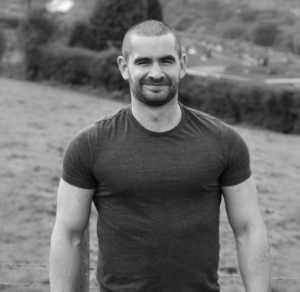
Daniel Kelly is a writer and entrepreneur who is extremely passionate about men’s health and fitness. Daniel is a leading European authority for men under 35 on testosterone optimization therapy, fitness training, mindset and men‘s health. He believes that health is not something that‘s given to you – it’s something you have to work at. With a shift in societal and environmental norms in the last few decades, he helps men transform their approach to health and fight against the factors that degrade their bodies. He is the author of “Optimized Under 35” and you can also find additional resources at Optimized Army. DanielKelly.eu

Dr. Farhan Khawaja aka “Doc Testosterone” is a professionally trained neuroscientist and health fitness educator. He specializes in developing state-of-the-art diet, lifestyle and fitness programs to naturally boost testosterone levels in men. He is the creator of Aphro-D: a 100% natural formula consisting of 4 organic ingredients with scientifically-proven effects on male vitality. His Aphro D Academy provide workshops, videos, and articles to help men reclaim their masculinity and achieve peak sexual performance. https://aphro-dacademy.com/
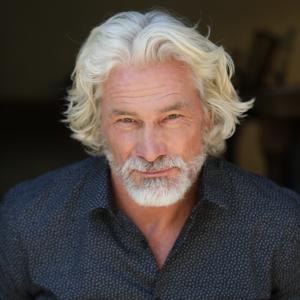
Pete Koch is a fitness expert, retired NFL defensive end (Bengals, Chiefs and Raiders), Hollywood actor and Youtube host. His passion for helping people has propelled his decades long career as a fitness and motivation coach to celebrities, athletes and regular folks who want to look, move and feel their very best. Pete is expert at melding scientifically proven training methodologies with clinical experience and motivational talk to yield maximize results. He trains people of all ages and levels of physical condition to help them achieve their fitness, weight loss and overall health goals. http://www.petekoch.com/
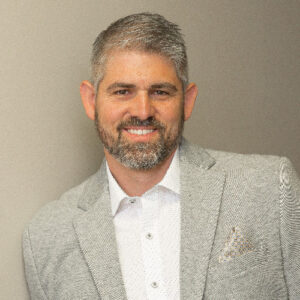
Dr. James Leonette is an award winning chiropractic physician and has been named “2018 Winner Circle Doctor of the Year” and “2017 Chiropractor of the Year” by The Masters Circle. Dr. Leonette has extensive education and training in medical and alternative medicine fields such as functional healing, epigenetics coaching, and nutritional therapies. He is the founder of Alpha Emerged- a platform founded on providing individualized wellness solutions through 100% personalized strategies and recommendations plus in-depth coaching. From weight loss, to sex drvie, to mental clarity, Alpha Emerged addresses your most pressing concerns through advanced lab testing and genetic interpretation for maximum health results! https://alphaemerged.com/

Dr. Jeffry Life is one of the healthiest and athletically fit 78 year olds in the world. But it wasn’t always that way. At 59 he found himself overweight with achy joints and poor health. After seeking expert support he became the Grand Champion in Bill Phillip’s 1998 Body-for-LIFE contest. But he started losing ground as he edged toward 63, losing muscle mass, energy, and his libido. After applying Anti-Aging Medicine, within a couple weeks he became a vibrant, healthy and happy man. This became the catalyst that moved him from Family Medicine to healthy aging medicine. He currently has a thriving practice in Charleston, West Virginia and has authored three books. He believes it is never too late, nor too early, to start living a healthier lifestyle and empowers his clients to achieve their fitness and health goals through his cutting-edge high touch programs. https://www.drlife.com/
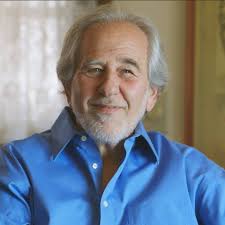
Dr. Bruce H. Lipton is an internationally recognized leader in bridging science and spirituality. Dr. Lipton began his scientific career as a cell biologist. His research on muscular dystrophy and cloning human stem cells focused upon the molecular mechanisms controlling cell behavior. Dr. Lipton started examining the principles of quantum physics and his research revealed that the environment controlled the behavior and physiology of the cell, turning genes on and off. His discoveries were a foreshadow of the science of epigenetics. With his deepened understanding of how the mind controls bodily functions, he now educates on leading-edge science and its connection with mind-body medicine and spiritual principles. He is the bestselling author of The Biology of Belief and a recipient of the 2009 Goi Peace Award. https://www.brucelipton.com/

Dr Ben Lynch is the best-selling author of Dirty Genes and President of Seeking Health, a company that helps educate both the public and health professionals on how to overcome genetic dysfunction. As a Doctor of Naturopathic Medicine working in environmental medicine he discovered the gap that epigenetics could fill and made it his mission to bring that cutting-edge science right into the doctor’s office through education and supplementation. If you’ve gotten your genetic challenges from websites like 23andMe and are massively confused by the wildly contradictory information, his StrateGene system can help. It zeroes in on the genetic abnormalities that pose the greatest challenges in people’s health and then provides comprehensive plans for overcoming those challenges. He has quickly become the go-to guy on treating genetic abnormalities through diet, supplements, and lifestyle. https://www.drbenlynch.com/

Aubrey Marcus is the founder and CEO of Onnit, a lifestyle brand based on a holistic health philosophy he calls Total Human Optimization. As an author of a New York Times bestselling book, “Own the Day, Own Your Life” and host of the Aubrey Marcus Podcast, Aubrey leads with vulnerability and honesty about several areas of life, with a focus on health, mindset, relationships (he is an open relationship with his fiance) and spirituality. Aubrey is most passionate about the healing effects of psychedelic medicine, and speaks openly about his experiences with Ayahuasca as a pathway to personal transformation. https://www.aubreymarcus.com/
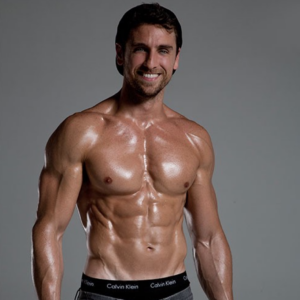
Mike Matthews wants to revolutionize the fitness industry by debunking myths and providing science-backed techniques to create a healthy physique. Mike had spent years scoring fitness magazines and following ‘trends’ but it wasn’t until he researched and applied the latest science that he got the lean and strong body he wanted. His strength skyrocketed and his energy was through the roof all by spending less time in the gym, doing less cardio, and eating foods he actually liked! “The real science of getting into incredible shape is very simple—much simpler than the fitness industry wants us to believe,” he says. As author of Bigger, Leaner, Stronger and founder of Legion Athletics, his mission is to fight mainstream health and fitness pseudoscience and reform the sports supplement industry. https://legionathletics.com/
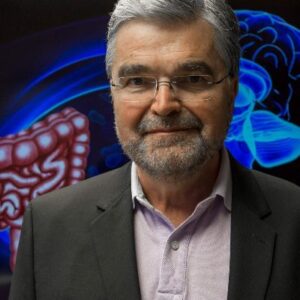
Dr. Emeran Mayer is a professor and director of multiple medicine departments at UCLA. He is a world renowned gastroenterologist and neuroscientist with 35 years of experience in the study of clinical and neurobiological aspects of how the digestive system and the nervous system interact in health and disease. His current research is on the role of the gut microbiota and brain interactions in emotion regulation, chronic pain and in obesity. His best selling book, “The Mind Gut Connection”, is a culmination of his study, sharing about the connection of the mind to mood and health. https://emeranmayer.com/

Ben Pakulski is an IFBB body builder and founder of the #1 Best selling muscle building program, MI40. He also hosts the popular Muscle Intelligence Podcast and is an international speaker who educates audiences on the practical, scientific, and mental aspects of living a healthy and fit life. In the gym, he helps his clients create a personalized approach to their goals with clear steps on how to achieve them. Ultimately, Ben wants to change the paradigm of muscle building: to encourage fitness enthusiasts of all ages and backgrounds to approach their goals with introspection, mindfulness, and strategic thinking. https://www.benpakulski.com/

Dr. Kirk Parsley creator of Sleep Remedy is most known for his expertise in sleep medicine. As a former Navy SEAL and Naval Medical Officer he consults and lectures worldwide on sleep, wellness, and hormonal optimization. He has discovered that the most under-used tool in the world for enhancing performance is quality sleep. Doc Parsley’s Sleep Remedy is designed to restore commonly deficient nutrients associated with sleep through a proprietary blend that provides the body what it needs to aid the natural sleep cycle. http://www.docparsley.com/
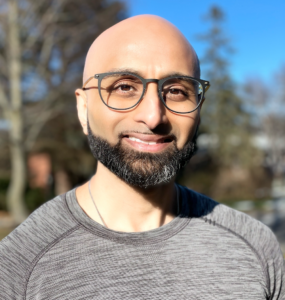
Sachin Patel is a father, husband, philanthropist, coach, author and speaker. He founded The Living Proof Institute as part of his own personal health transformation. Sachin’s philosophy is that “The doctor of the future is the patient.” He’s actively doing whatever it takes to keep people out of the medical system by empowering them through education, self-care, and remapping their mindset. He believes health begins at home. Sachin now coaches functional medicine practitioners around the world. Learn more at www.thesachinpatel.com

Dr. Rhonda Patrick is a groundbreaking researcher and scientist who is dedicated to the pursuit of longevity and optimal health. She shares the latest research on nutrition, aging, and disease prevention with her audience. Some of her frequently used topics include micronutrient deficiencies and the diseases of ages as well as the role of genetics in a person’s health status. She advocates for the importance of mindfulness, stress reduction, and sleep. It is Dr. Patrick’s goal to challenge the status quo and encourage the wider public to think about health and longevity using a proactive, preventative approach. https://www.foundmyfitness.com/

Dr. Joseph Raffaele is a researcher and educator of Age Management Medicine which helps advance innovative, evidence-based approaches to extending “healthspan”. This entails keeping the body young and vital whatever its chronological age. Dr. Raffaele has created software that gives an analysis of biomarkers of aging and physiological age for each organ system and the body as a whole. He is the co-founder of PhysioAge Medical Group, a national clinical practice that uses bioidentical hormone replacement therapy, individualized nutritional supplement programs, diet, and fitness strategies targeting the aging process. He has appeared on the Today show, National Public Radio (NPR) and several other media outlets sharing his breakthrough technology. http://drraffaele.com/
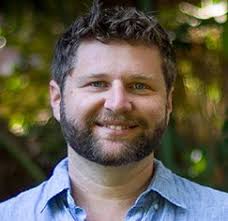
James Schmachtenberger realized early that his calling was to solve big problems. Starting as an advocate and business owner in the medicinal cannabis industry, he got introduced to the science of ‘biohacking’ and started the Neurohacker Collective in 2015. The idea is simple: build a global movement to upgrade human capacity and empower individuals to make good choices for their health. Neurohacker Collective offers leading information and top-of-the-line products for self-directed neurological optimization based in complex systems science. Neurohacker Collective’s scientific approach focuses on supporting the body’s ability to self-regulate, rather than overriding regulatory systems with chemicals. The company began with a focus on psycho-affective products with the launch of their Qualia nootropic line but now offers various supplements and resources such as a podcast and blog. https://neurohacker.com/

Dr. David Sinclair, named one of TIME magazine’s “100 most influential people in the world”, is a Harvard Medical School professor in the Department of Genetics and co-Director of their Center for the Biology of Aging.
He is best known for his work on understanding why we age and how to slow its effects through genetic, biophysical, and pharmaceutical approaches.
Dr. Sinclair is the co-founder of several biotechnology companies and his work is featured in five books, two documentary movies, and interviews like 60 Minutes. He is an inventor on 35 patents and has received more than 25 awards and honors for his cutting edge work. Check out what he is up to around genetics and anti-aging! https://genetics.med.harvard.edu/sinclair/people/sinclair.php

Dr. J. Richard Steadman is a retired sports medicine orthopaedic surgeon in Vail, Colorado, who specialized in knee injuries and disorders. He is the Founder of The Steadman Clinic, as well as the Founder of the Steadman Philippon Research Institute. Dr. Steadman is a renowned and award-winning innovator in the field of orthopaedic sports medicine. He is internationally known for the development of several advanced surgical procedures for the knee. His technique, the “package” is used to restore normal comfortable movement to a painful arthritic knee. He is also known for the “Microfracture” surgical procedure that can delay the need for more invasive procedures. As a result, Dr. Steadman and his clinic, have been sought out by professional athletes and public figures alike. https://www.thesteadmanclinic.com/

Dr. Daniel Stickler is the Medical Director of Neurohacker Collective and cofounder of the Apeiron Zoh Inc. Disheartened by “sick care”, he believes the ideal solution for long term wellness is a holistic and allopathic approach. After 10,000+ hours of research, he has found the answer to an optimal life: the DNA code. But that doesn’t mean the solution is only genetic. Dr. Stickler says, “Only 20% of longevity is genetic. The rest is up to us. New research indicates the epigenetic clock can be impacted by what we do in our daily lives.” His latest research has informed the development of his Human Potential Medicine- an integrated, biospheric systems-approach that combines modern medicine with leading-edge genetic science. https://www.apeironzoh.com/
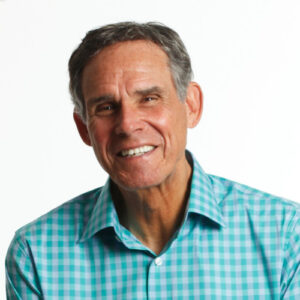
Dr. Eric Topol was voted “Most Influential Physician Executive in the US” in Modern Healthcare’s 2012 poll. His specialty is in genomic and wireless digital innovative technologies that reshape the future of medicine. As a practicing cardiologist, he has led worldwide clinical trials to advance care for heart disease. In the cardiac industry, his research has been the driving force behind a few discoveries. Those including how genes can increase susceptibility for heart attacks and how to use this knowledge to prevent blood clots. https://www.scripps.edu/faculty/topol/

Dr. Jean-François Tremblay is one of the world’s leading experts on peptides. Jean-François studied Exercise Physiology, Biochemistry, and Pharmacy. Dr. Tremblay has been researching peptides and SARMS since the 90s. He is now a researcher at UQAM. His focus on peptides is on their practical applications in sports performance, anti-aging, and health in general. https://www.canlab.net/
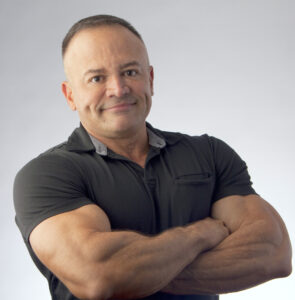
Nelson Vergel is a chemical engineer whose search for cutting-edge health resources started when he was diagnosed with HIV over 30 years ago during a time when HIV was a death sentence. Through research, he quickly became a leading advocate in the health field as a long term survivor. As an author, he has published multiple books on hormone management and healthy aging. His commitment is to provide integrative medicine education and resilience-building resources to as many men as possible. https://nelsonvergel.com/
Claim Your Free Copy of Male 2.0 Now
Join thousands of men who have discovered how to be unstoppable.
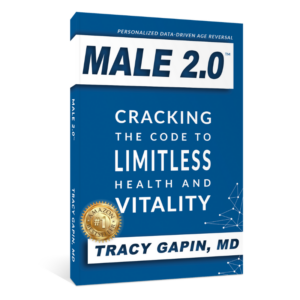
In Male 2.0™, Dr. Tracy Gapin has turned everything we once thought we knew about men’s health and performance upside down. The old model of how to be “a man” is broken. A man who works himself to death. Unfortunately, a man who tries to NOT get sick but isn’t really healthy either. And a man who takes a pill for every ill but is never really cured. That was Male 1.0. Now, imagine being THE MAN ─ owning your performance in the bedroom, the weight room, and the boardroom. Living a fully optimized life. Becoming limitless. This is Male 2.0!
Tracy Gapin, MD, FACS is a board-certified Urologist, world-renowned Men’s Health & Performance Expert, Author, and Professional Speaker. Using state-of-the-art biometric monitoring, nutrition, and lifestyle intervention, Dr. Gapin coaches Fortune 500 executives and evolutionary leaders of business, sports medicine, and high performance. He specializes in cutting-edge precision medicine with an emphasis on epigenetics, providing men with a personalized path to optimizing health & performance. www.GapinInstitute.com.
Ready to take the next steps?
Download the Blueprint
Schedule a Call
**************************
Want more tips to optimize your health? Listen to the latest podcasts. Click HERE


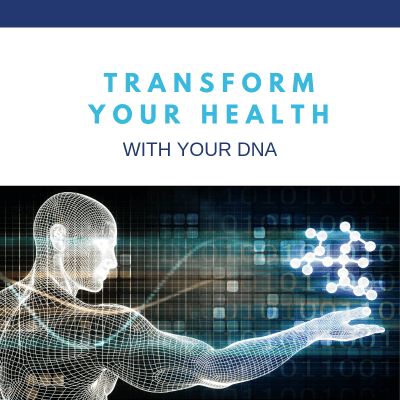



 In Male 2.0™, Dr. Tracy Gapin has turned everything we once thought we knew about men’s health and performance upside down. The old model of how to be “a man” is broken. A man who works himself to death. Unfortunately, a man who tries to NOT get sick but isn’t really healthy either. And a man who takes a pill for every ill but is never really cured. That was Male 1.0. Now, imagine being THE MAN ─ owning your performance in the bedroom, the weight room, and the boardroom. Living a fully optimized life. Becoming limitless. This is Male 2.0!
In Male 2.0™, Dr. Tracy Gapin has turned everything we once thought we knew about men’s health and performance upside down. The old model of how to be “a man” is broken. A man who works himself to death. Unfortunately, a man who tries to NOT get sick but isn’t really healthy either. And a man who takes a pill for every ill but is never really cured. That was Male 1.0. Now, imagine being THE MAN ─ owning your performance in the bedroom, the weight room, and the boardroom. Living a fully optimized life. Becoming limitless. This is Male 2.0!
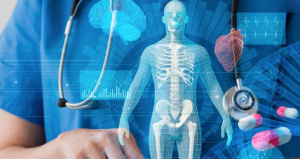
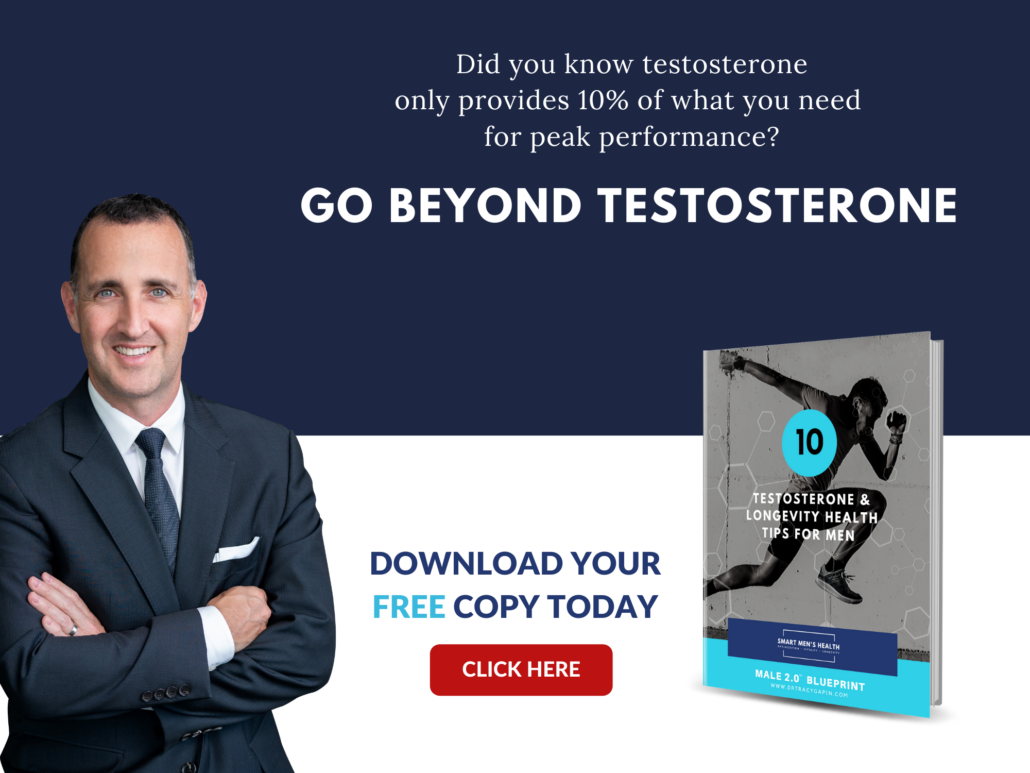




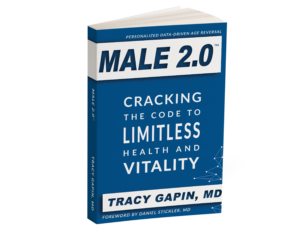 In
In 



 A study at the University of South Wales
A study at the University of South Wales




